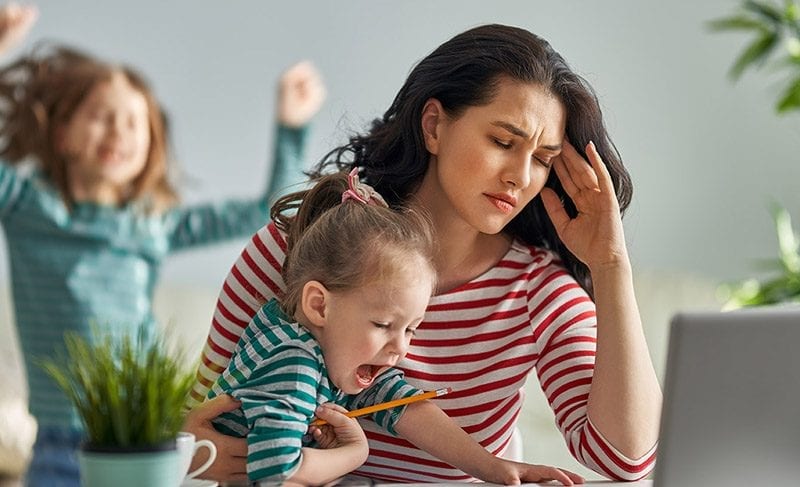
Hurting From Home
Is the ‘new normal’ having an adverse effect on your health?
More than half of office workers believe their employer should do more to help them work from home during the coronavirus (COVID-19) crisis. This has lead to millions of Britons suffering from pain as a result of their makeshift home offices.
Of people being advised to work from home to help contain the COVID-19 pandemic, new research[1] has shown that nearly two-thirds (63%), equating to 11 million Britons, have injured their back, neck, hips, knees or wrists amongst other injuries as a result. This is something that is likely to continue, even as the lockdown measures are now starting to be relaxed.
Dedicated home workspace
Only one in three (32%) has a dedicated workspace in their home, and as a result, home workers are using their sofas, kitchen chairs, beds or even beanbags as makeshift workstations. And it means that a quarter of home workers are hunched over their computers for eight hours a day while others admit to slouching or slumping in their seats, balancing their computer on laps or the arm of a chair, or sitting with their back or legs twisted to try to get comfortable.
Younger people are disproportionately affected – workers aged 18-34 are least likely to have a simple desk and a chair with a backrest, and are twice as likely to work from their bed as their older counterparts. This age group has reported the highest levels of neck, hip, knee and wrist pain.
Relieving the symptoms
But just one in ten (11%) has sought medical help, with the majority using over-the-counter painkillers, massages or ice baths. Worryingly, 28% have done nothing to relieve their symptoms – but without proper treatment, they risk longer-term damage.
When social distancing measures were introduced many workers were thrust into working from home to keep them safe, with little time to prepare their workspaces. So it’s concerning, but perhaps not surprising, to see that so many are now struggling with their musculoskeletal health.
Social distancing measures
Two in five (42%) home workers intend to continue working from home even when social distancing measures are lifted. So as we move towards the ‘new normal’ where higher levels of working from home are likely to feature, it’s really important to address any pain or discomfort now, to make this sustainable in the long term.
Simple changes such as ditching the beds and beanbags and sitting up with your feet planted on the floor, adopting handsfree sets for long phone calls and making time to stretch (even if that’s doing yoga at your desk) can go a long way to preventing strain. Seeking help for long-term and persistent pain remains essential. Early diagnosis and access to treatment can have a positive effect on the long-term prognosis of musculoskeletal conditions.
Source data:
[1] Research conducted among 2,003 UK adults for Bupa by Opinium Research between 24 and 27 April 2020. Opinium estimates the UK adult population is 52,079,000. According to research undertaken by Opinium, 34% of adults are currently working or homeschooling from home (or 17,706,860 individuals). Of home workers, 63% reported aches, pains or injury, equating to 11,155,322
Content of the articles featured on this website are for your general information and use only and is not intended to address your particular requirements or constitute a full and authoritative statement of the law. They should not be relied upon in their entirety and shall not be deemed to be, or constitute, advice. Although endeavours have been made to provide accurate and timely information, there can be no guarantee that such information is accurate as of the date it is received or that it will continue to be accurate in the future. No individual or company should act upon such information without receiving appropriate professional advice after a thorough examination of their particular situation. We cannot accept responsibility for any loss as a result of acts or omissions taken in respect of any articles. For more information please visit www.goldminemedia.co.uk